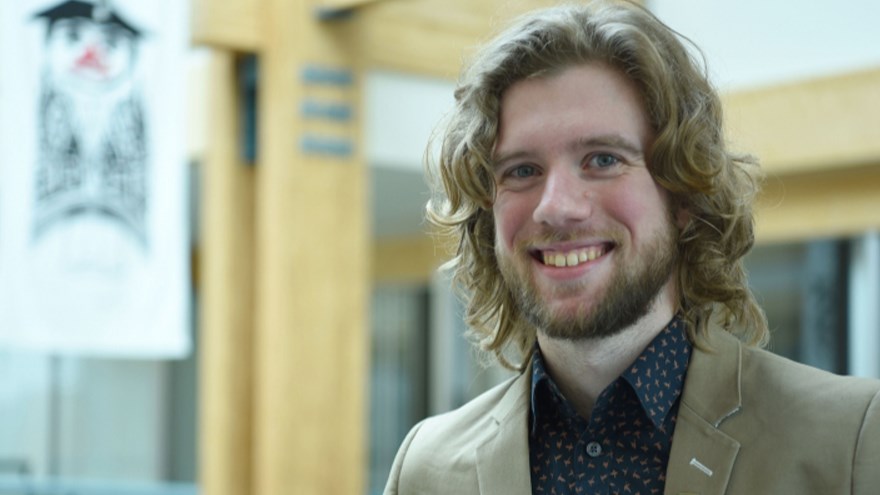Prince George teacher taking his witch trials studies to Oxford

His interest in witch trials has led Aaron Larsen, a local teacher and UNBC graduate, to do his doctoral research at the
It all began as an undergraduate assignment for a UNBC history class where he studied a witch trial that took place in
Larsen will continue his work as a PhD student at
“My nine years at UNBC have prepared me immeasurably to continue my studies at
Larsen started studying history at UNBC in 2012. He graduated in 2017 with his bachelor of arts, finished his education degree in 2019 and has been a School District 57 teacher ever since while still working on his master of arts at UNBC.
Through the research of the witch trial, Larsen is looking to map the lives of the nine women and one man that were accused of witchcraft. As he combines their testimony with geographic information, he’s seeking to get a better understanding of their everyday lives.
“My research provides insights into the geographic world of lower status women living in eighteenth-century
Larsen’s interest in history was instilled by his grandfather Lloyd Comish, who began sharing picture books about the Titanic with Larsen when he was young and they explored other areas of interest as he grew up in
“Though he passed away in November of 2020, my grandfather was always eager to hear about my research,” Larsen said. “I am so thankful that he lived long enough to know I had been encouraged by one of the top scholars in my field to apply for doctoral studies at the best school in the world, since this journey truly began with him.”
Larsen said he is grateful for the opportunities he had at the local university.
“My years at UNBC have given me a direction in life and the skills to pursue anything I could dream of,” Larsen said. “Over nine years and three degrees, I have gained so much through interdisciplinary research, community service on campus, and the tutelage of phenomenal professors.”
Out of the classroom Larsen joined many student-led organizations, served on the UNBC Senate, created a history conference that ran for a number of years before the pandemic and won an award for campus leadership as a result of the volunteer work he’d done in the university community.
Larsen believes his volunteerism in the community contributed to being accepted into
He works at Nusdeh Yoh (House of the Future), the local
“I trained as a high school social studies teacher,” Larsen said. “Since graduating from the education program I’ve been teaching in a variety of positions at Nusdeh Yoh - resource teaching, Grade 4/5 teaching and right now I am an English Language Learning teacher.”
Larsen said he’s really proud to work at an Indigenous choice school and enjoys working with the children there.
“It’s been really cool to work with children to help immerse them in their culture and help bring the history of their culture to life,” Larsen said. “It’s a really powerful feeling to help keep the history alive.”
No comments:
Post a Comment